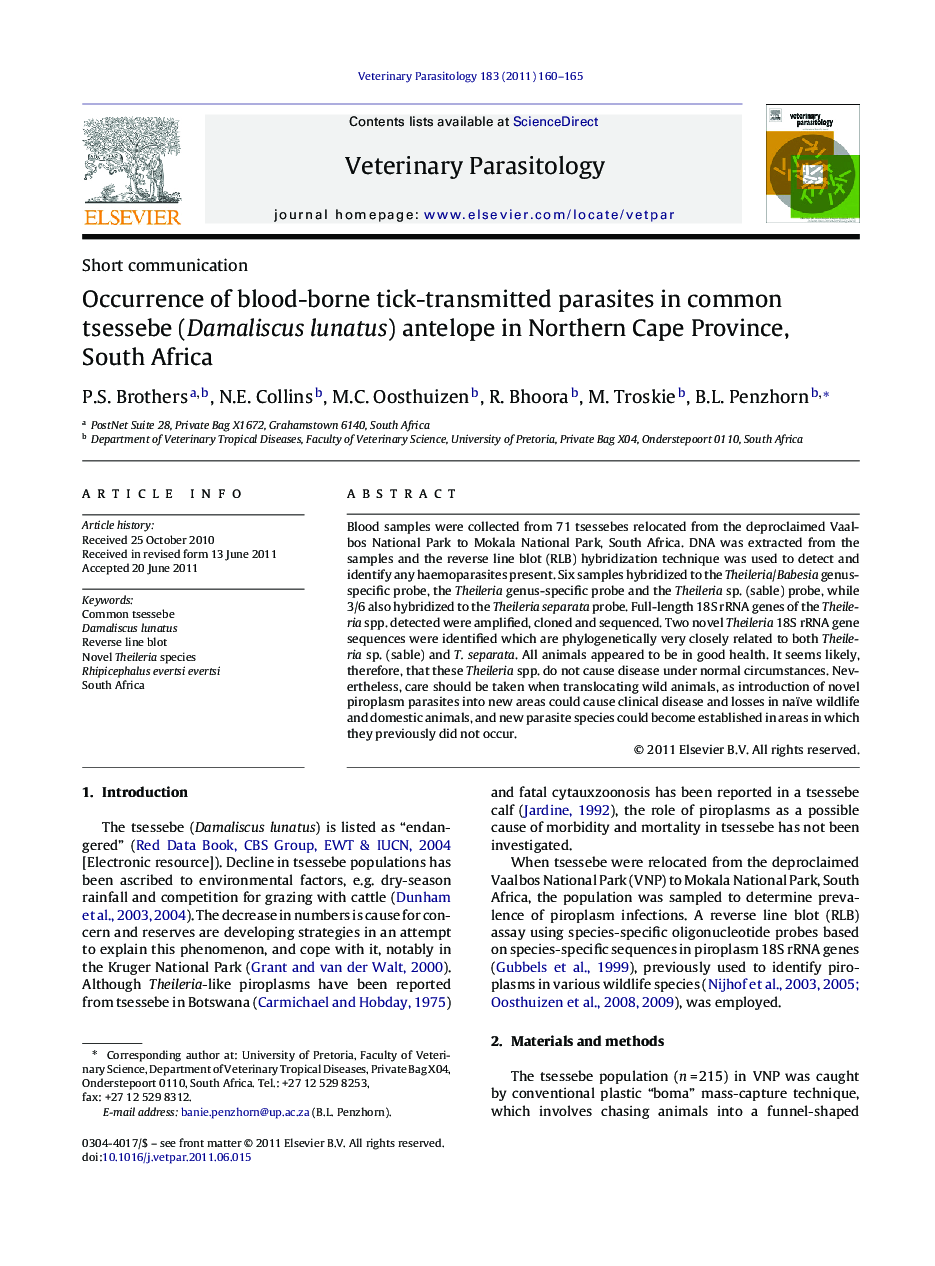| Article ID | Journal | Published Year | Pages | File Type |
|---|---|---|---|---|
| 5805306 | Veterinary Parasitology | 2011 | 6 Pages |
Blood samples were collected from 71 tsessebes relocated from the deproclaimed Vaalbos National Park to Mokala National Park, South Africa. DNA was extracted from the samples and the reverse line blot (RLB) hybridization technique was used to detect and identify any haemoparasites present. Six samples hybridized to the Theileria/Babesia genus-specific probe, the Theileria genus-specific probe and the Theileria sp. (sable) probe, while 3/6 also hybridized to the Theileria separata probe. Full-length 18S rRNA genes of the Theileria spp. detected were amplified, cloned and sequenced. Two novel Theileria 18S rRNA gene sequences were identified which are phylogenetically very closely related to both Theileria sp. (sable) and T. separata. All animals appeared to be in good health. It seems likely, therefore, that these Theileria spp. do not cause disease under normal circumstances. Nevertheless, care should be taken when translocating wild animals, as introduction of novel piroplasm parasites into new areas could cause clinical disease and losses in naïve wildlife and domestic animals, and new parasite species could become established in areas in which they previously did not occur.
